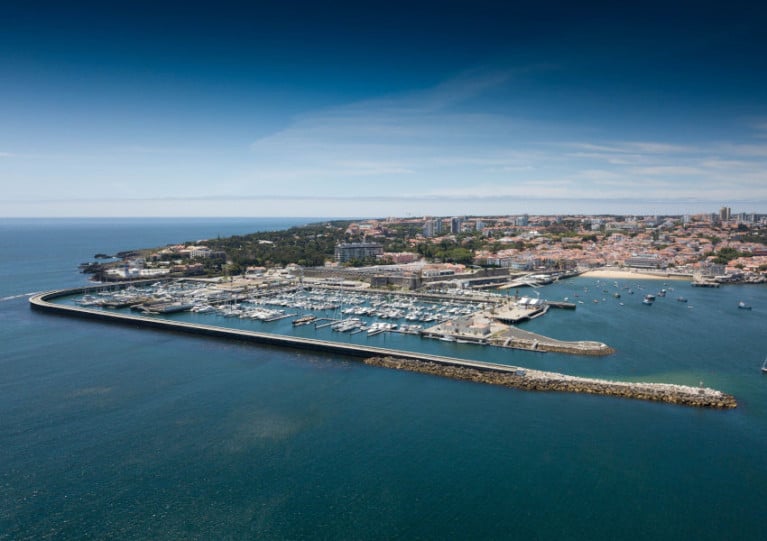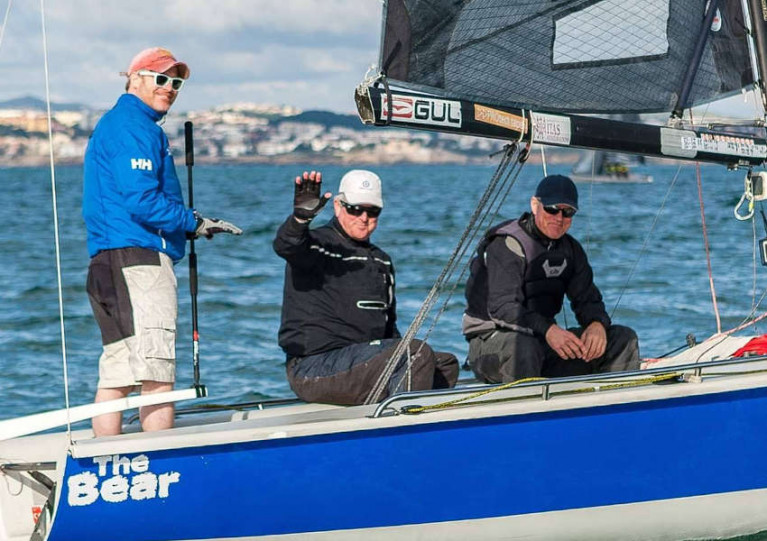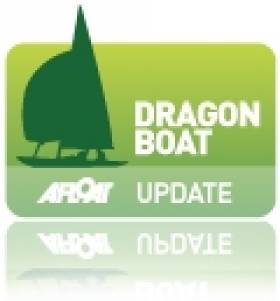Displaying items by tag: Cascais
Following its start from Lorient in France at the end of May, the inaugural edition of The Ocean Race Europe will stop in Cascais, bringing the top international offshore racing teams in the world to Portugal.
Located 30km west of Lisbon, Cascais is a historic and cosmopolitan seaside resort on the edge of the Tagus estuary, between the Sintra mountains and the Atlantic Ocean.
The Ocean Race Europe will feature the record-breaking, one-design VO65 fleet which produced the closest edition of The Ocean Race in history in 2017-18. The teams are seeing the event as the first step on their journey towards the next edition of The Ocean Race round-the-world race in 2022-23.
And for the first time, the foiling IMOCA fleet will participate in a competition under The Ocean Race banner. The IMOCA teams bring a high-tech component to the event, showcasing the latest foiling technology.
“The Ocean Race Europe will surely provide us with great competition on the water. But it is also an opportunity for our wonderful sport to inspire towards a greater purpose,” said Richard Brisius, race chairman of The Ocean Race.
“We are united in driving action towards the promotion of ocean health and we look forward to working on this with all of our friends and partners in Cascais when we are in Portugal this June.”
The home team in Cascais, the Mirpuri Foundation Racing Team, was the first VO65 team to confirm its entry in the European race back in January and The Mirpuri Foundation will host the event from its training base at the Clube Naval de Cascais.
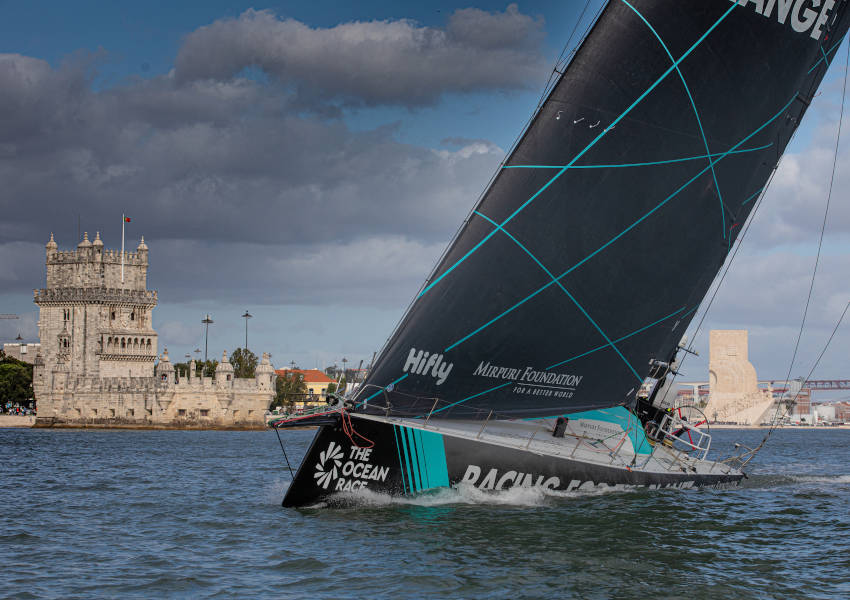 Mirpuri Foundation Racing Team training off Portugal | Photo: Marc Bow
Mirpuri Foundation Racing Team training off Portugal | Photo: Marc Bow
Paulo Mirpuri is the founder of the Mirpuri Foundation, which has been a driving force in bringing The Ocean Race Europe to Cascais. He said: “We are proud to welcome The Ocean Race Europe to Cascais and to host the stopover in our home port with our friends at Clube Naval de Cascais. This is the first time that an Ocean Race event has come to Cascais, having come to Lisbon in the past.
“Today’s announcement is the culmination of an enormous amount of work from many different parties. We have worked hard with the organisers of the race to bring The Ocean Race Europe to Cascais, our home, and we will have many more developments to share very soon.
“This will be a spectacular race after a difficult year for so many people and we cannot wait to welcome the fleet to Portugal.”
Cascais is known as ‘the charm of the Atlantic’ and provides direct access to a prime racing playground just off the main beach and the Cascais Marina area.
"Cascais is very proud to be one of the cities chosen to become a stopover for The Ocean Race Europe,” said Deputy Mayor Miguel Pinto Luz. “Sailing is a part of our identity and hosting the best regattas in the world is now a tradition here.
“We consider Cascais the best place to live - for one day or for a lifetime. And if you are a sailor, this is paradise…one of the best regatta locations in the world, in front of our beautiful Bay.”
Yoann Richomme, skipper of the Mirpuri Foundation Racing Team agrees, saying: “It will be an honour to lead ‘Racing For The Planet’ and our crew out from my home in Lorient and into our home port of Cascais this spring, a place we have seen many times from our boat, but never surrounded by such an incredible fleet.
“It will be a wonderful occasion for everyone involved. There is no doubt, The Mirpuri Foundation’s passion for sailing will be felt by everyone.”
The Ocean Race Europe will start from Lorient, France, over the final weekend of May, bringing the teams south across the Bay of Biscay, into the Atlantic and the stop in Cascais.
From there the two fleets will race into the Mediterranean. The Ocean Race Europe will finish in Genoa, Italy in the third week of June, with a further stop along the route in the Med to be confirmed shortly.
SB20 Ireland president John Malone offered his congratulations to team Bád — Stefan Hyde, Jerry Dowling and Jimmy Dowling — who travelled to Cascais for last month’s Winter Series event, competing against 40 boats from 10 nations.
Two more weekend events remain in the series, starting 29 February and 28 March respectively, which will be great preparation for the upcoming SB20 Worlds in Cascais this September.
Boats planning to make the trip are reminded of the new ferry route from Rosslare to Bilbao, which replaces the Cork-Santander route, with booking open from 28 February.
Closer to home, 2020 kicks into gear with the SB20 Shakedown at Lough Ree Yacht Club on Saturday 14 March, if you are interested please email me. Plans are unfolding for a BBQ afterwards depending on numbers.
Before that, the best place to catchup with everyone and find a boat or crew will be next month at the SB20 class dinner, on Friday 6 March in the Royal Irish Yacht Club. Early booking is advised; email [email protected] or call 01 280 9452.
This year’s event calendar has been updated with confirmation of the Southerns and Westerns dates and venues. SB20 Ireland membership is required, set at a reduced rate of only €40 for 2020.
- May 16-17 — Easterns (Part of DL Cup, SB20, 1720, & J80), Dun Laoghaire (RIYC)
- Jun 20-21 — Northerns, Strangford Lough (SLYC)
- Jul 10-11 — Southerns (Fri & Sat before Cork Week), Crosshaven, Cork (RCYC)
- Aug 8-9 — Westerns, RStGYC
- Sept 1-5 — SB20 Worlds, Cascais (Portugal/Lisbon CNC)
- Sept 5 — Gortmore Bell, Lough Derg (Iniscealtra)
- Sept 18-20 — Nationals, Athlone (LRYC)
- Oct 17-18 — Midlands, Dromineer (LDYC)
Any further updates on these and other happenings this season will be posted on social media — which will also have details on Davy Taylor’s (Team Ted/Sin Bin) series of coaching sessions as part of DBSC Tuesday sailing, where mixing of crews to get new people on the water is encouraged.
Dragon 'U-Boat' at Cascais
#dragon – The popular European International Dragon Winter Series at Cascais in Portugal got off to a spectacular start over the weekend.
After a week of strong winds, the breeze had eased, but a huge leftover sea still running in the Atlantic was a timely reminder that further along the Portuguese West Coast, they have a breaker which rivals Ireland's mighty Aileens off the Cliffs of Moher.
For those who could handle the conditions, the sailing was spectacular.
However, the word is that it was an un-released runner which caused a mark-rounding German Dragon to be knocked on its side and fill.
Whatever the reasons, quips about U-Boats in the Battle of the Atlantic were thought to be in the worst possible taste.
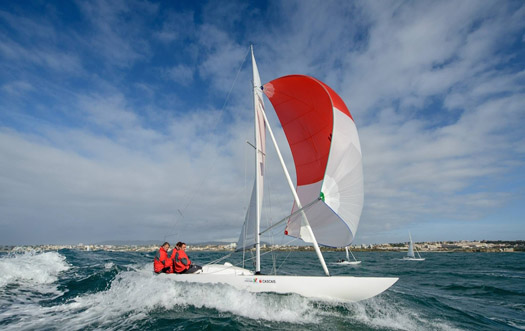
Big seas, big sunshine – the weekend's Dragon Racing at Cascais as it might have been...
Ireland to Showcase 'Planet's Biggest Waves' on 2012 Kite Surf Tour
#KITESURFING - Ireland will be one of four stops on the 2012 Kite Surf Pro World Championship Tour to decide the best wave kitesurfers in the world, Surfer Today reports.
Kicking off in Cascais, Portugal in June before heading to Mauritius in September, the tour will come to Ireland's west coast - described as "Europe's secret kite surfing jewel and home to one of the planet's biggest waves" - from 19-28 October.
According to Surfer Today: "Ireland's Kite Surf Pro will incorporate a unique mobile format, capable of showcasing each day's action at the choicest of locations on the country's wild and swell-abundant west coast."
The tour will wrap up in Maui, Hawaii from 29 November to 8 December, where the €15,000 prize purse wil be up for grabs at the famed surfing venue of Ho'okipa.
Surfer Today has more on the story HERE.



























